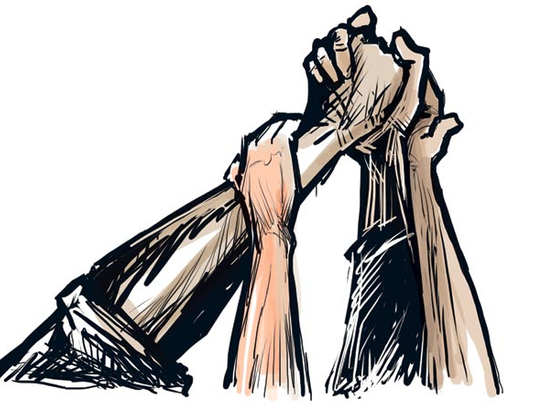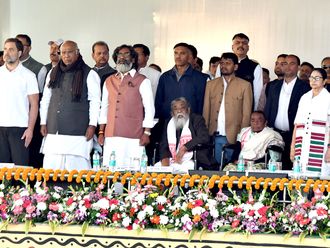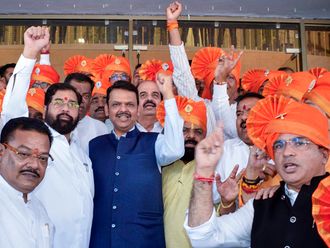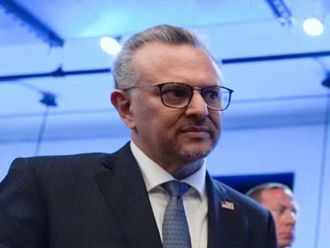
Iraq is still perilously close to chaos a month after parliamentary elections in yet another milestone event in its contemporary history. Final results are now in dispute in what may be shaping as a full-fledged power struggle between incumbent Prime Minister Nouri Al Maliki and the man who would replace him, Eyad Allawi. With an estimated 65 per cent of 19 million eligible voters (out of a total population of 28 million), including a large portion of eligible Sunni voters, apparently participating in the election process, around 6,200 candidates from 86 factions competed for seats in the 325-member parliament. Remarkably, about 500 Sunni candidates were banned from running because of their alleged connections to the Baath party, and while security conditions remain precarious, Iraqis engaged in what is nothing more than experimentations.
In fact, these latest elections illustrated those advances in the democratisation process, even if the threat of a civil war looms over the horizon. What can be done to avoid it?
While Nouri Al Maliki's State of Law Coalition was widely expected to win the most seats, it was unlikely to enjoy a clear majority to form a government without various allies and, in the event, the more "secular" coalition of former prime minister Allawi managed to edge slightly ahead. Once the latest count is settled, the new government will be a coalition, although its composition is unknown. Even Moqtada Al Sadr, in Qom, Iran, to prepare for his ayatollah qualification examinations, is apparently anxious to broker a deal.
In the middle of these elections, the key behind-the-scenes power remains the United States, whose military presence dominates the equation even if it is in gradual withdrawal mode. Gone are the Bush administration's misplaced confrontations with Al Qaida in Iraq as well as the elusive search for weapons of mass destruction. Nowadays, only Tony Blair and Gordon Brown publicly believe in such fiction. Even the alternative and hastily assembled "democracy project," which was touted by outsiders for several years, is in abeyance although a nascent, stable and democratising country is certainly a worthy goal. For if the military objective was less than stellar not the actual lopsided fighting that was never in doubt, but the need to resort to the use of force when the real goal was regime change and oil Iraq has yet to settle on a new political order.
Search for a formula
Herein lay the most sensitive questions confronting the republic. Will Sunni and Shiite Iraqis, Arabs and Kurds, along with critical Christian minorities, settle on an appropriate formula that will iron out governance among all factions and ethnic groups? Equally important is the vital issue of how to allocate oil revenues among major regions and groups. Even the need for a strong central government, which many reject to avoid the emergence of another dictator, is subject to various permutations.
From the American perspective, the military operation in Iraq which will be known in September by its new eponym ‘Operation New Dawn', when the total number of US troops should be around 50,000 is winding down. President Barack Obama's decision is allegedly "send[ing] a strong signal that Operation Iraqi Freedom has ended and that [US] forces are operating under a new mission." A recent Defence Department memo added: "It also presents opportunities to synchronise strategic communications initiatives, reinforce our commitment to honour the security agreement and recognise our evolving relationship with the Iraqi government." Time will tell.
Nevertheless, given these realities, and depending on what kind of coalition will emerge from the latest elections, Iraqi leaders ought to quickly settle their differences to skirt the danger of a civil war or even a military coup.
Indeed, Iraqis are now in charge of their country's destiny to a far greater extent than many assume, since American troops are largely confined to bases. Undeniably, the massive but planned withdrawal will allow local security forces to assume a greater share of the burden as well as the responsibility, while it creates a huge vacuum.
Gradually, Iraqis, and only Iraqis, will solidify their nascent democracy to avoid the country fracturing along ethnic and sectarian lines. The main goal of the next government ought to be to avoid civil war as American troops withdraw. This is a gargantuan but doable task for the next prime minister. While analysts such as Thomas Ricks, who covered the war for The Washington Post and wrote two solid books, Fiasco and The Gamble, as well as editorialists at The Economist of London are calling for a long-term western military presence in Iraq, this would not necessarily prevent internecine conflict from breaking out. Ricks believes that Washington must "keep 30,000 to 50,000 United States service members in Iraq for many years to come," ostensibly "to train and advise Iraqi security forces and to carry out counterterrorism missions." Perhaps.
For now, Al Maliki or Allawi can avoid a civil war if the Shiites remain united, Sunnis claim a stake in the future of a confederated Iraq and Kurds preserve their autonomy within specifically defined institutions that protect established privileges. All must rely on compromise, which is the fuel of any democracy engine, and that cannot be imported.
Dr Joseph A. Kechichian is a commentator and author of several books on Gulf affairs.









